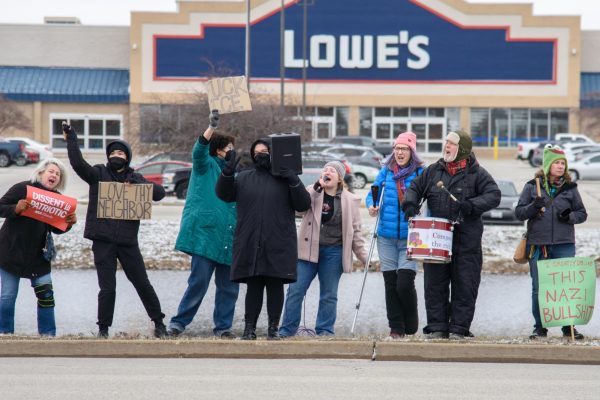University alumni receive honors
Feb 24, 2006
Last updated on May 12, 2016 at 01:27 a.m.
The first recipient, Julian Bond, is the chairman of the National Association for the Advancement of Colored People. Bond is a distinguished professor at American University in Washington, D.C., and professor of history at the University of Virginia. He has previously received an honorary doctor of humane letters degree from American University. Since 1998, Bond has chaired the board of the NAACP, the oldest and largest U.S. civil-rights organization. Bond served as a Georgia legislator for 20 years. During his legislative tenure, he sponsored or co-sponsored more than 60 bills that became law and successfully fought for the creation of a majority black congressional district in Atlanta.
Elaine Fuchs will receive one of the honorary degrees because of her continued research in cell therapy which could aid in curing cancer. Fuchs grew up in Downers Grove, Ill., and entered the University in 1968. She graduated with an undergraduate degree in chemistry in 1972. She was a James Scholar, and her name appears on one of the bronze tablets that grace the halls of the main library. Ironically, Fuchs refused to go to her own commencement due to the time period and Vietnam War protests. Fuchs then attended Princeton University as a graduate student in biochemistry. She graduated in 1977, and then began her post-doctorate degree at M.I.T.
“I wanted to choose something more medically oriented for graduate school,” Fuchs said. “Therefore, I did not choose physical chemistry for grad school, and instead picked biochemistry.”
Fuchs has conducted research in what she called “unconventional methods,” looking at the biochemistry of skin cells and different proteins.
Get The Daily Illini in your inbox!
“We take basic science to work out the problems of basic human disease,” Fuchs said. “I have increasingly been guided by a desire for basic science, of finding something that is useful to society.”
In 1986, Fuchs was named to the National Academy of Science, and she became a member of the Institute of Medicine in 1994. In 2005, she became a member of the American Philosophical Society.
Mark Rutan received his Bachelor of Science degree in Aeronautical Engineering at California Polytechnic University in 1965. His education includes the Space Technology Institute at Cal Tech and the Aerospace Research Pilot’s School at Edwards Air Force Base. Rutan earned an honorary degree of Doctor of Science from California Polytechnic State University, San Luis Obispo and a Doctoral of Science from Daniel Webster College in 1987. In 1988, he received a Doctoral of Humanities, from Lewis University, and in 1990 a Doctorate of Technology from Delft University of Technology.
Rutan worked for the U.S. Air Force from 1965 until 1972 as Flight Test Project Engineer at Edwards Air Force Base in California. His projects included fighter spin tests and transport.
Rutan has received numerous awards and honors throughout his career, including being named in Time Magazine’s “100 Most Influential People in the World,” in April 2005. Rutan received the Howard Hughes Memorial Award on Jan. 26, 2006. He currently serves as a member of the National Academy of Engineering.
Thomas M. Siebel is the founder and chairman of the board of Siebel Systems Inc. and will receive an honorary doctorate of engineering degree. Siebel, who began his career with Oracle Systems and Gain Technology, founded Siebel Systems Inc. in 1993.
He developed e-Business software that has become a $2 billion corporation. Siebel earned three degrees at Illinois and has donated to the University and other universities. The state-of-the-art Thomas M. Siebel Center for Computer Science on campus and the multi institutional Siebel Scholars program were named in his honor. The University awarded Siebel the Presidential Award and Medallion in 2001.
Siebel serves on several advisory boards at Illinois, Stanford University and the University of California at Berkeley. The philanthropic endeavors of Siebel and his wife, through the Thomas and Stacey Siebel Foundation, have made a great impact in higher education, research and innovation, and community wellness programs throughout the nation.





